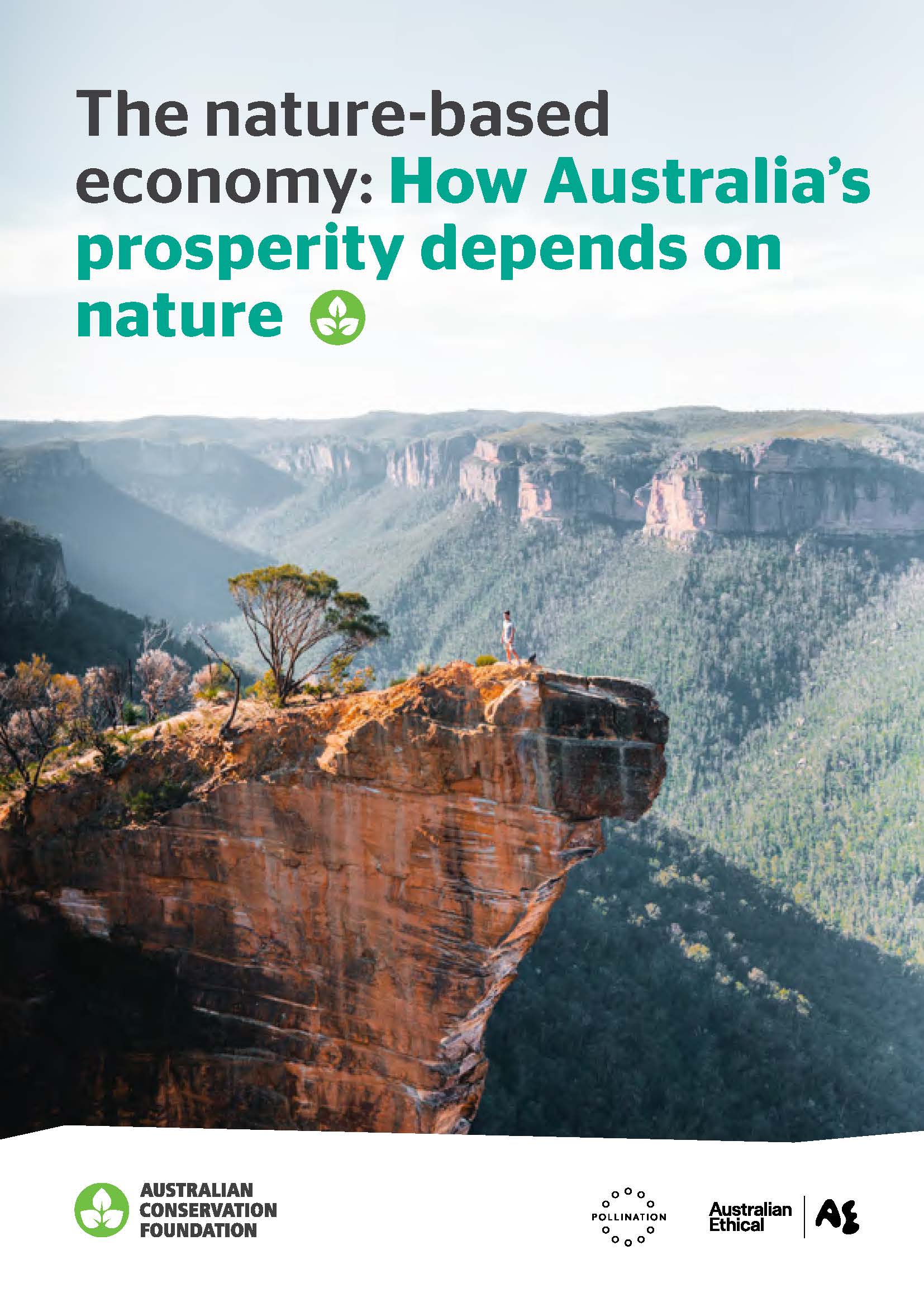This report, produced by Australian Conservation Foundation and supported by Pollination and Australian Ethical Investments, was prepared by Nathaniel Pelle (Australian Conservation Foundation) with contributions from Carl Obst and Daniel Whitaker (IDEEA Group), Amanda Richman (Australian Ethical Investment), Laura Waterford, Helen Crowley, and Jane Hutchinson (Pollination).
Foreward by Geoff Summerhayes.
Nature is our ‘natural capital’. Healthy ecosystems and biodiversity fundamentally underpin our economy and society at large.
However, to date, we have failed to recognise the true value of our natural capital – we have assumed that nature is abundant and an endless resource to be extracted from, cleared, fished, dumped into without consideration of the cumulative effects of those actions. Most significantly, we have never accounted for natural capital in financial statements. That is all changing, and it is likely to change very rapidly.
The planet is exhausted. We are facing an unprecedented point in human history: both because of the rapid decline in nature we have witnessed in our lifetimes and because we hold the future of the planet in our hands. This decade is the critical decade for action to address the multiple pressures on nature and biodiversity – of which climate change is just one. I am hopeful we will meet this challenge, armed with
the knowledge that this is not just an environmental issue, but that it is a critical economic one.
In Australia, we have our work cut out for us. The 2021 Federal Statement of the Environment Report is disturbing reading. It noted, amongst other things, that “[t]here were 1,385 plant species, 533 animal species and 88 ecological communities listed as threatened … in June 2021, including 21% of all Australian mammals. Around 200 plant and animal species and 15 ecological communities have been added to lists since 2016”. These statistics speak directly to the fact that Australia’s natural capital is being destroyed at an alarming rate.
From an economic perspective, this has significant implications. Every sector in the Australian economy is dependent on nature to varying degrees and in different ways. This report has laid bare the fact that approximately half of Australia’s GDP is directly dependent on specific ecosystem services derived from natural capital. The balance of Australia’s GDP is indirectly dependent on natural capital across complex value chains.
In order to ensure Australia’s continued prosperity, business, the public sector and civil society must come together to address the financial risks associated with the decline in our natural capital. International policy and regulatory settings are already shifting, following the climate playbook but on ‘fast forward’. The launch of the Task-force on Nature-related Financial Disclosures (TNFD) is one example of international development with implications for Australia. Some Australian businesses are already embracing the draft TNFD framework, while others risk being caught flatfooted and playing catch up. The cause for hope is nature’s ability to regenerate. It was recently pointed out to me that “if you zoom in from the big picture of global biodiversity, a mosaic appears; in amongst the stories of loss there are inspiring stories of regeneration and positive change, with nature making a difference in people’s lives, and people valuing and nurturing their natural environment.”
Australia has the opportunity to be part of that mosaic. We can and must put the nation on a pathway to a Nature Positive future. This will require significant change in business practice and government policy settings, and time is of the essence. We must improve our understanding of our economic dependency on nature and act swiftly to protect and regenerate our critical ecosystems and biodiversity. This Report is a helpful resource to that end.
DOWNLOAD REPORT
